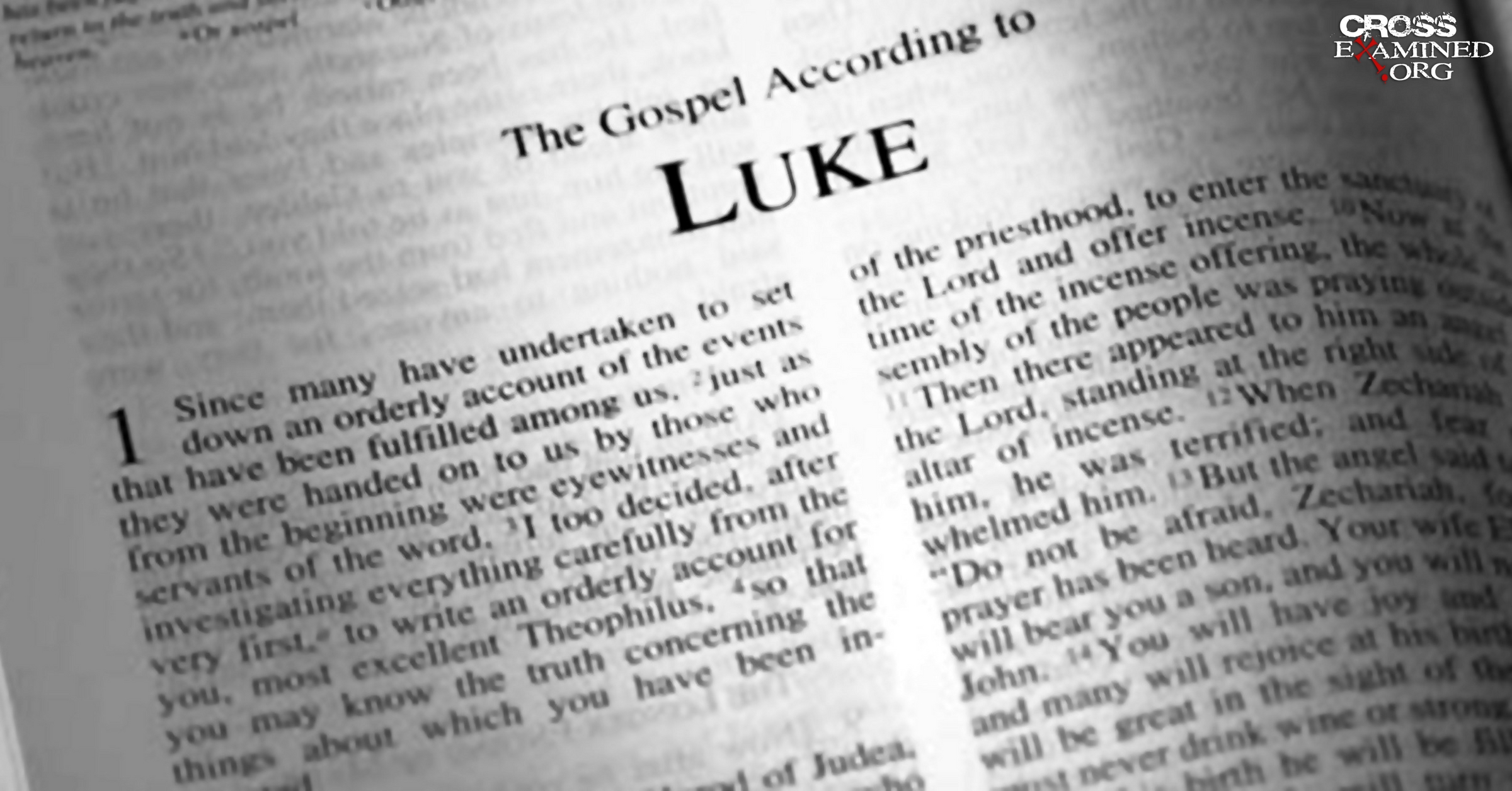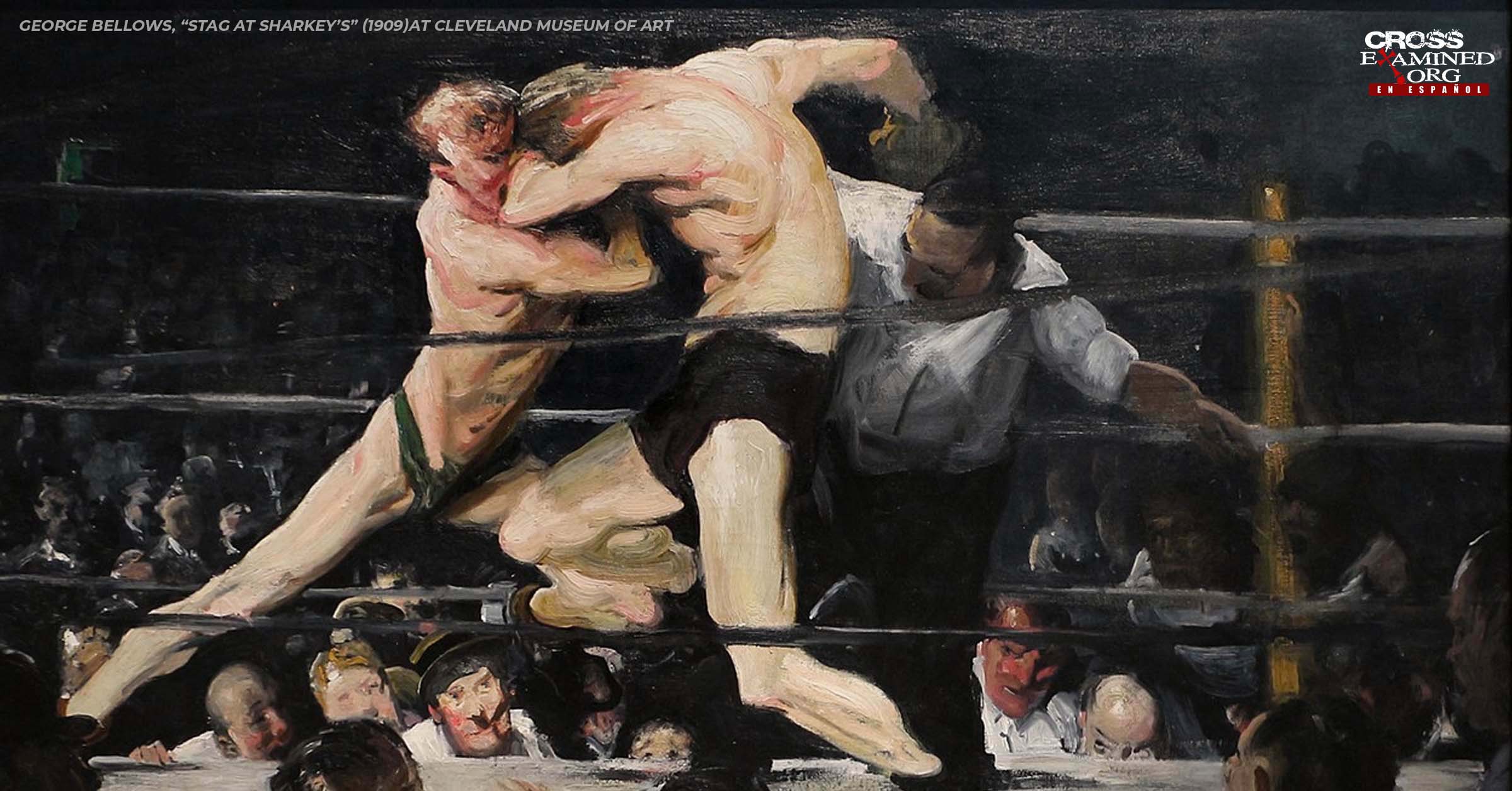¿Por qué no soy Fideísta? Parte II
By Xavier Gonzalez
Part I: Definition and history of Fideism.
Reasonable Faith, Historical?
This section is not a commercial for the ministry of the popular American philosopher William Craig. It is intended to investigate the history of the early church, that is, have the first Christians always been irrational and anti-intellectual? Did they embrace any idea of fideism? Did they avoid the objections that were put to them? Or is it the opposite?
Well, for this section we will try to answer these questions and others that may come to mind, but our short answer to these questions and others is:
NO
The early church like the church fathers always had a reasonable faith!
And to demonstrate this, we are going to defend two theses: the first is that the first Christians really did think about what respected their faith and the second is that God does not want ignorant or anti-intellectual followers.
Going back to the beginnings of Christianity, the early Christians were generally known for worshipping God [1] and not for venturing to resolve the great philosophical and doctrinal dilemmas of their time.
We can say that Christianity in its beginnings was a religion that was concerned with the worship of God and those who cared about helping others, however, at first Christians did not focus on answering the question of the origin and value of the world as something to be resolved, nor as a doctrine that they should defend.
Yet, strange as it may seem, even the first Christians did not consider an explanation of the origin and functioning of our world to be important. For them, creation was so important in their worship, because in some way it praised God the Creator, something like hymns or quotes in the Psalms.
Like the ancient Hebrews, Christians came to think of the same God who was their redeemer as the creator of all things. That is, they claimed that the God they worshipped was the same God to whom they entrusted their salvation . By then, the Christian doctrine of creation came from the experience of worship, not from an intellectual exercise.
The conviction in Christian worship carried with it certain guidelines towards the world, how to live in it. In the pagan and cloying world where the church was located, it was the cradle of the union of Judaism and Christianity, an action planned towards God’s saving purpose.
The doctrine of creation was not important as an explanation of the origin of the world, but rather as the foundation for life in the world and as a neat expression of faith, which the church celebrated and shared in its worship.
The early Christians had pagan culture as their neighbors, and this led them to think and reason, as well as to objections outside the ranks of Christianity. Christian leaders of that time felt compelled to think and write about creation for two reasons:
First, there was always the danger that pagan cultural views on the nature and value of the world would creep into the life of the church. This would have undermined Christian obedience in the present world, while calling into question faith in the creator and redeemer God whom the church worshipped.
Secondly, it became necessary to show society in general that what the Church celebrated in its worship, nor the way in which Christians viewed the physical world, was not irrational.
Otherwise, Jesus and faith in him would have been a source of ridicule and mockery. It was in response to this double challenge that Christians developed the doctrine of creation. A doctrine—again—that they shared with the people of Israel. That is why the official doctrine of creation was developed in response to the challenges of opposing opinions.
And with that ideal in mind, some of the first Christian theologians, or “second-century apologists,” set about seeking points of contact (or common ground) between the teachings of the Church and the opinions and most respected traditions of the surrounding Hellenistic culture.
This may come as a surprise, but it was very important to remove all obstacles from the path of unbelievers to faith. In addition, Christians had to combat many of the rumors and accusations that circulated about the supposedly “perverse” practices of their new cult [2]
Despite the struggles, not everything was bad…
The task had been greatly simplified for the benefit of Christians, thanks to the good work of a number of thinkers and philosophers of that time. They did not see the world as if it were a cruel battlefield between gods, but instead tried to explain the world in a coherent and rational way. However, Christians would take these tools with a grain of salt, as they rejected, accepted or modified the theses.
This allowed the Neonate [3] of the church to present the Christian doctrine of creation for one God in such a way that the Hellenistic world and its intellectual class could understand and respect the formulation of the creation of the world. This would answer important questions for the new religion, difficult questions such as, How is God dependent on the different places and times where people have not heard about Jesus Christ? To deny such activity would be a dagger in the heart of creation and its redemption. Therefore, Christians needed to consider the origin as the value of cultures that did not know about Jesus Christ in order to answer such questions.
But still, Christians had some difficulties in communicating the gospel to people from a different or totally different cultural background, after all, many of those cultural backgrounds differ massively from Christian doctrine.
And if we talk about the most cultured people of that time… It was difficult to converse with clever citizens who were proud of the achievements of their civilization and of their philosophers. This raised the obstacle that it would be necessary to suggest that they reject all this, or was there some way in which the Christian understanding of the world, creation and history could interpret, evaluate, accept or transform some of the most valuable achievements of civilization? Was the Christian message so radically new as to tear out such roots? To give a frivolous yes would be like falling into the Marcionism that the Church of the second and third centuries fought so hard, leaving individuals naked in their culture to embrace Christianity…
Another difficulty for the expansion of the gospel was the Roman persecution, apart from the accusations, let us see for example the relations of the Roman emperor, Trajan , with the Christians, in this case the response given to Pliny the Younger :
You observed proper procedure, my dear Pliny, in sifting through the cases of those who had been denounced to you as Christians. For it is not possible to lay down a general rule to serve as a sort of fixed standard. They should not be sought; if they are denounced and proven guilty, they should be punished, with this reservation, that whoever denies that he is a Christian and really proves it—that is, by worshipping our gods—even though he was under suspicion in the past, should obtain forgiveness by repentance. But anonymously published accusations should have no place in any judicial proceedings. To do so is at once a dangerous sort of precedent and would not be in keeping with the spirit of our times. [4]
Adding these negatives, Christianity had it difficult at that time, this pressure led them to inquire about the faith and the culture that surrounded them, for them to use the following instrument, The doctrine of the Logos .
In the philosophical tradition it was customary to refer to a Being who was above all others and to whom all others owed their existence. Some Platonists thought that reality was the product of a series of emanations from that first being, the One . Christians soon realized the need to reject such ideas, because they led to pantheism and, therefore, to idolatry. Despite these stains, the idea that there was only one being, above all others, coincided with Christianity and this was very attractive to Christians who were trying to refute the polytheistic ideas of pagan culture.
That tradition had been reflecting on the perfections of this First and Supreme Being since the time of Parmenides of Elea (6th century BC), one of the pre-Socratic philosophers. Parmenides, and his long tradition of followers, had reached a certain consensus about those perfections. And as Parmenides, and most of the Platonic tradition, had understood them, Christian theologians adopted those perfections with slight changes. In this way they sought to show that their faith was not as irrational as some claimed and that, far from being atheistic innovators, the Christian faith was actually the culmination of the best of classical philosophy. For these perfections have become part of the Christian heritage when speaking and thinking about God. [5]
In short, the first Christians, moved by their worship, persecution and pressure, took on the task of presenting their faith as a reasonable faith.
Next part, meet the promoters of Reasonable Faith.
References
[1] Let us consider, for example, the satire made by the second-century Greek satyr , Lucian of Samosata , when he speaks of Christians in his work, The Death of Peregrine :
11. It was then that he learned of the wonderful tradition of the Christians, through association with their priests and scribes in Palestine. And – how else could it be? – in an instant he made everyone look like children, for he was a prophet, a cult leader, a synagogue chief, all of that, all by himself. He interpreted and explained some of their books and even composed many, and they worshipped him as a god , made use of him as a lawgiver, and set him up as a protector, next to that other, to be sure, to those who still worship , the man who was crucified in Palestine because he introduced this new cult into the world.
13. Indeed, people came even from the cities of Asia, sent by the Christians at their common expense, to succour and defend and encourage the hero . They show incredible speed whenever such public action is taken; for in a short time they squander their all. So it was then in the case of Peregrinus; much money came to him from them on account of his imprisonment, and he did not seek not a little of the proceeds of it. The poor wretches have convinced themselves, in the first place, that they will be immortal and live for ever, consequently, whereof they despise death and even willingly give themselves into custody; most of them. Moreover, their first lawgiver convinced them that they are all brothers among themselves after they have transgressed once, for all in denying the Greek gods and in worshipping that crucified sophist and living under his laws. Therefore they despise all things indiscriminately and consider them common property, receiving such doctrines traditionally without any definitive proof. So if any charlatan and swindler, capable of taking advantage of opportunities, comes among them, he quickly acquires sudden wealth by imposing it on the simple people….
-Lucian of Samosata, The Pilgrim’s Pass, 11 and 13.
[2] Nero’s slander towards Christians for the fire in Rome:
https://www.nationalgeographic.com.es/historia/grandes-reportajes/neron-y-el-incendio-de-roma_6822
[3] Newborn.
[4] As you can see, it is not a witch hunt, but the fruits of rumors and heavy slander that fell on Christians in the Roman Empire are undeniable:
http://www.earlychristianwritings.com/text/pliny.html
[5] Paraphrase, Brief History of Doctrines , Justo L. Gonzalez, pp. 47-58)
Xavier Gonzalez is from Venezuela and is dedicated to the study of philosophy, early Christianity and theology. He converted to Christianity at the age of 15. He managed the Me Lo Contó Un Ateo website and is in charge of the apologetics section of the Iglesia Cristiana la gracia website ( http://www.iglesialagracia.org ).












Leave a Reply
Want to join the discussion?Feel free to contribute!